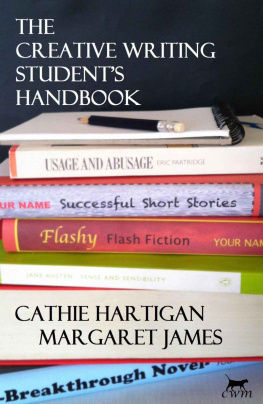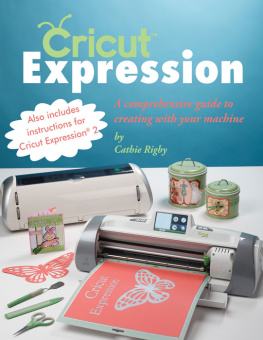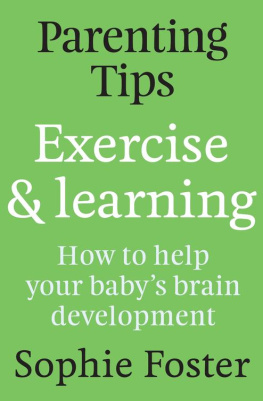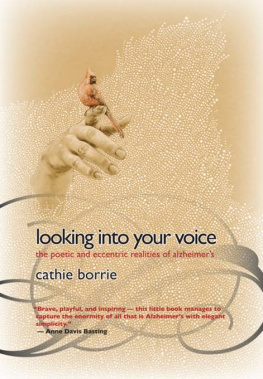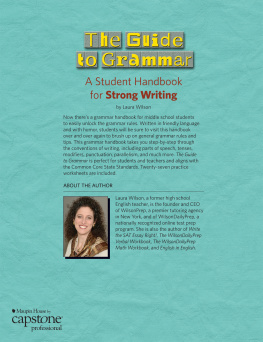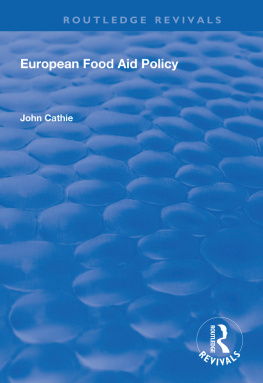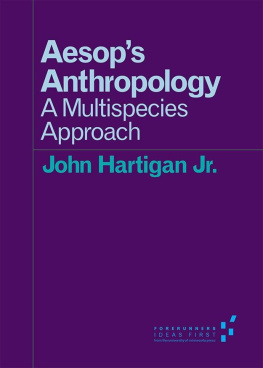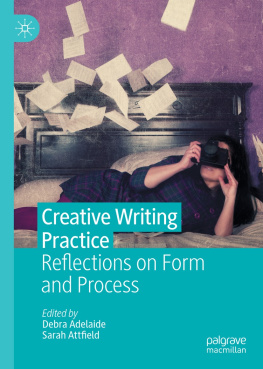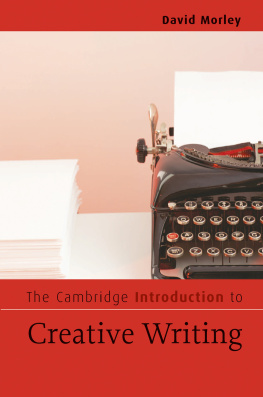Hartigan Cathie - The Creative Writing Students Handbook
Here you can read online Hartigan Cathie - The Creative Writing Students Handbook full text of the book (entire story) in english for free. Download pdf and epub, get meaning, cover and reviews about this ebook. year: 2014, publisher: CreativeWritingMatters, genre: Detective and thriller. Description of the work, (preface) as well as reviews are available. Best literature library LitArk.com created for fans of good reading and offers a wide selection of genres:
Romance novel
Science fiction
Adventure
Detective
Science
History
Home and family
Prose
Art
Politics
Computer
Non-fiction
Religion
Business
Children
Humor
Choose a favorite category and find really read worthwhile books. Enjoy immersion in the world of imagination, feel the emotions of the characters or learn something new for yourself, make an fascinating discovery.
- Book:The Creative Writing Students Handbook
- Author:
- Publisher:CreativeWritingMatters
- Genre:
- Year:2014
- Rating:4 / 5
- Favourites:Add to favourites
- Your mark:
- 80
- 1
- 2
- 3
- 4
- 5
The Creative Writing Students Handbook: summary, description and annotation
We offer to read an annotation, description, summary or preface (depends on what the author of the book "The Creative Writing Students Handbook" wrote himself). If you haven't found the necessary information about the book — write in the comments, we will try to find it.
The Creative Writing Students Handbook — read online for free the complete book (whole text) full work
Below is the text of the book, divided by pages. System saving the place of the last page read, allows you to conveniently read the book "The Creative Writing Students Handbook" online for free, without having to search again every time where you left off. Put a bookmark, and you can go to the page where you finished reading at any time.
Font size:
Interval:
Bookmark:
THE CREATIVEWRITING STUDENTS
HANDBOOK
CathieHartigan and Margaret James
The Creative WritingStudents Handbook
Copyright 2014Cathie Hartigan and Margaret James
Additional materialcopyright the contributors
Published 2014 byCreativeWritingMatters
www.creativewritingmatters.co.uk
The rights of CathieHartigan and Margaret James have been asserted by them in accordance with theCopyright, Designs and Patents Act 1988
All rights reserved.No part of this publication may be reproduced, stored in a retrieval system ortransmitted in any form or by any means, electronic, mechanical, photocopying,recording or others, without the prior permission of Cathie Hartigan andMargaret James or a licence permitting restricted copying
In the UK, suchlicenses are issued by the Copyright Licensing Agency, Saffron House, 6 10 Kirby Street, London, EC1N 8TS
www.cla.co.uk
Table of Contents
Introduction
Youll need commitment, passion, determination and a goodteacher.
But youll also need to be a good learner.
As teachers of creative writing, we have had the hugepleasure of seeing many of our students achieve publication and win or beshortlisted for prizes. Our students have become confident, articulate writerswho have learned to use their own special talents to their maximum potential.
We notice that the students who are most likely to succeedare those who enjoy engaging in all aspects of the writing process and are alsogood learners who listen, are willing to take direction and are open tosuggestion. Good learners are happy to take part in constructive discussionsand have plenty to offer the teacher in the way of student feedback.
Our aim is to help you to discover the pleasures of creativewriting and become a successful writer yourself.
A creative writing teacher can:
Inspire you
Enable you to findyour writing voice
Help you to improve
Provide you withinformation
A creative writing teacher cant:
Tell you what towrite
Write it for you
Guarantee publicationor competition success
Save your life
Human beings love stories. They like to tell, hear, read andwrite them.
Stories are one of the ways in which we respond to, makesense of and communicate with the world.
Creative writing teachers are usually writers themselves.But they dont have to be bestselling or prizewinning novelists. They need tobe committed and enthusiastic teachers. A teacher with a passion for thesubject can be hugely inspirational. So thats the sort of teacher youll needto find.
All creative writing teachers should encourage you to readwidely. They should also tell you that reading the sort of story you want towrite is essential. So dont listen to people who say: dont read this or thatbecause you might be influenced by its style or content. Of course you might beinfluenced.
When you admire (or shudder at the very thought of) otherpeoples houses their decor, their furniture or their DVD collections this can be an enriching experience.
Perhaps youll think: a sofa like Janes would look grand inmy sitting room. But fancy putting it with that carpet! A sheepskin would lookmuch better. Or perhaps a Chinese rug? I wouldnt have blue walls, Id have green.
Soon, youll have a whole new imaginary room. It isnt likeJanes, but it does have a splendid sofa which is the same as hers. Strangely, this sofa looks quite different inyour room.
If you lived on a desert island with nothing but thecomplete works of Shakespeare to read, its likely your own writing style wouldcome to reflect his. Its a fact that much of what Shakespeare wrote stillenhances and enriches our language. Some of his expressions are now socommonplace that we think of them as clichs for example: this is the long and short of it. (Merry Wives of Windsor Act 2 Scene 2).
The journalist and author Bernard Levin once wrote ahumorous piece quoting many lines from Shakespeare which are used in oureveryday speech. It is available on a poster from the Globe Theatre http://www.shakespearesglobe.com/shop/product/quoting-shakespeare-poster/87.But language is constantly developing new means of communication and this canbe seen in changes to writing style. Since Shakespeares time, weve all read lots of other things, and weve absorbedthem into our collective literaryconsciousness.
If you read widely, you will increase your vocabulary, noticemany different ways in which you can structure your writing, and youll haveaccess to the best resource of all: a wealth of ideas. Theres no copyright onideas!
Nobody writes in quite the same way as you do. So, themoment your pen touches the paper or your fingertip presses a key, somethingwonderful might happen. You could find you start to write creatively using yourown unique voice.
If you then realise youve written something like the cat sat on the mat, however, itslikely this has come from your memory.A creative writing teacher will focus on helping you to tap into your creativity. You can access this creativesource in a variety of ways, and one of the best is to write every day.
But to write what? Well...try shutting your eyes,turning your head in another direction, opening your eyes and writing aboutwhat you can see. Or close your eyes, listen, open your eyes again and writeabout what you heard. Or write about what you had for lunch, the last shop youvisited or a walk you took. Write about what is bothering or upsetting you orwrite about what makes you happy.
Write freely and, at this early stage, dont allow yourinternal editor to comment on your work. Keep going and always write a fewlines beyond the point at which you first thought of stopping. Change thesubject, change it back, write without worrying about making mistakes. Makenotes instead of sentences if you cant get your thoughts down fast enough.Dont worry if your spelling isnt all that grate (sic). In fact, dont worry if what you write makes no sense at all.
How on earth can this be a good plan? Nobody will publish anincomprehensible story full of mistakes. It is unlikely to win a competition.But...
...every field of human endeavour, whether its sculpting,gardening or writing a cracking good story, requires a coming-together of both ideas and craft. We learn some elements of the craft of writing at school. If were to pass our exams, itsessential we get to grips with good writing practice that we get ourheads round conventional grammar, spelling and punctuation. Commercialpublishers certainly expect us to get our basic presentation right.
But sometimes we are so afraid to break the rules that ourimaginations are stifled. Free-writing as it is sometimes called, allows us tobreak all those rules. Who knows what we might find outside their confines?Some interesting ideas, perhaps?
After youve allowed your imagination free rein for a while,and have accumulated lots of ideas, youll need to think about how you can put allthis material into a story. We all organise our writing into sentences andparagraphs, but it is the order ofour ideas that makes for a goodstory. So this is where the craft ofwriting comes back into play.
If youre stuck for ideas, these can certainly be generatedby reading the work of other writers. Reorganised, polished andnewly-presented, these ideas might end up making good stories. Authors of fanfiction and of modernisations and/or continuations of existing stories areinspired by the work of other writers. The award-winning
Font size:
Interval:
Bookmark:
Similar books «The Creative Writing Students Handbook»
Look at similar books to The Creative Writing Students Handbook. We have selected literature similar in name and meaning in the hope of providing readers with more options to find new, interesting, not yet read works.
Discussion, reviews of the book The Creative Writing Students Handbook and just readers' own opinions. Leave your comments, write what you think about the work, its meaning or the main characters. Specify what exactly you liked and what you didn't like, and why you think so.

